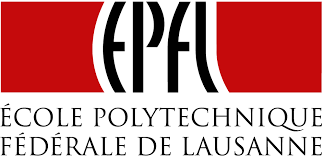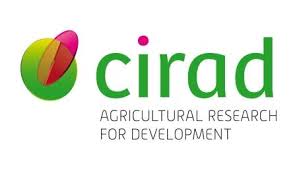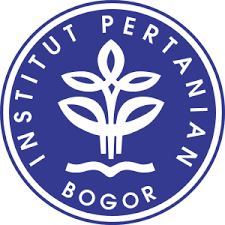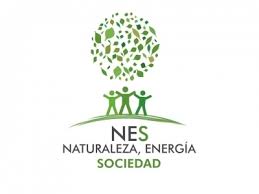- OPAL workshop with stakeholders of the oil palm sector (December 2017)
- Game sessions with different stakeholders (December 2017)
- Running the Indonesian game with local policy makers (October 2017)
- Role playing game with local communities, East Kalimantan (August-October 2017)
OPAL workshop with stakeholders of the oil palm sector (December 2017)
On 14 December 2017, CIFOR together with IPB, ETH Zurich and the local government of Kutai Kartanegara organized a workshop on strengthening governance of oil palm landscape to meet sustainable and equitable goals. Held in Tenggarong, the capital city of Kutai Kartanegara, the workshop brought together around 80 people representing different stakeholders from government (provincial and district level plantation agencies), oil palm companies, community cooperatives, smallholder associations, village heads (from selected villages where OPAL project operates), universities, and others. The workshop was intended to discuss key issues around oil palm plantation development in the district such as agrarian changes, impacts of oil palm expansion on the household livelihood, legality and smallholders’ access right over lands, and partnerships between oil palm companies and nearby communities. In particular, the workshop was intended to provide input to the development and revision of local regulations governing plantations and partnership. This is in response to the request from local authority to OPAL project team to provide input to two major district policies governing oil palm development currently under review, namely on the governance of plantations (Peraturan Daerah No.6/2014) and partnership between local communities and oil palm companies (Peraturan Bupati No. 1/2016).
The workshop was opened by a high-level official from the district of Kutai Kartanegara, i.e. the Secretary to Head of the district, who has also been present in a meeting during a field visit by OPAL team leader and Steering Committee members in September 2016. This indicates that the local authority highly supports and provides constant endorsement on OPAL project and values the contribution the project made thus far. Some project team members, Dr. Arya Hadi Dharmawan, Bayu Eka Yulian, Dyah Ita Mardiyaningsih, Fakhrizal (IPB), Nur Hasanah (ETH Zurich) and Heru Komarudin (CIFOR) took part actively in the organization of the workshop, and presenting and discussing research findings with audience. Some invited resource persons from the District Plantation Agency, National Land Agency and University of Kartanegara attended the workshop and provided useful material for discussion.
Here are some key issues and points:
- There are in total 56 oil palm companies in the district of Kutai Kartanegara covering 660,000 ha. Only 44 companies are active. Those having already HGU is only 260,000 ha. Planted areas cover 190,000 ha or 28.9% of the total area granted to companies, comprising the company plantation 157,000 ha (81.4%) and scheme plantations 35,000 ha (18.6%)
- Independent smallholder plantations continue to increase from 20.500 ha in 2013 to 27.000 in 2017
- Challenges facing the oil palm sector in the district are land use conflict not only between companies and communities as commonly occurring elsewhere but also between oil palm and coal companies; companies are obliged to establish farm dedicated to nearby communities (20% of their total concession) but only few have been able to fulfill this requirements; tensions occur between member farmers and management of the cooperatives; high cost for transporting FFBs and lack of adoption of good plantation practices
- In terms of the status and permits, there are six categories of oil palm business in the district: (1) those having a complete set of permits including location permit (IL), business plantation permit (IUP), business use rights (HGU) and their plantation are exist, (2) only those having IL and IUP permits, they have plantaions but they don’t have HGU, (3) only having IL, (4) only having IL permit and controlling land, (5) having more than 25 ha of areas of oil palm plantations, but they don’t have HGU, and lastly (6) having HGU but they don’t have plantation.
- There is indication of what it is called “a silence of expansion” where oil palm plantations are gradually expanded without the knowledge of the authorities (unregulated and uncontrolled). The size normally ranges from 0.5 to 3 ha (less than 25 ha) and the doer usually adopt clear and burn method of opening the lands
- There is a tendency towards a single source of income where people tend to reply their livelihoods on oil palm as source of their income. There is then need to revise the current local regulation (No. 6/2014) on the governance of plantations, and need to control the limit (size) of large scale plantation, by considering the carrying capacity of the ecosystem
- The discussion session revolve around: unclear definition of deforestation which varies to different stakeholders; deforestation versus the role of mono-culture oil palm plantation in storing carbon and reducing emissions; need to improve partnership between communities and companies (some cooperative and village heads attending the workshop confirmed the lack of commitment on the part of the companies to meet their promises), repeated changes in national regulations which are not conducive to local’s adoption of good practices, need for OPAL project to provide concrete and practical solution over the problem local stakeholders are facing.
A workshop summary report is being prepared, and will be submitted to the local government for reference. Please contact Heru Komarudin (h.komarudin@cgiar.org) or OPAL Indonesia team members if you need further information on the workshop and the issues discussed and follow up actions (e.g. providing input to the development of local policies).
Game sessions with different stakeholders (December 2017)
Two sessions of Companion Modeling game developed by Nur Hasanah, PhD student from ETH Zurich, were run on 15 Dec and 20 December, respectively. Heru Komarudin from CIFOR facilitated the sessions, and six local assistants (Deby, Arif Rahman, Diah Rani Prahasti, Asti Iryanto Putri, Nofa Andika and Halimatu) assisted the OPAL project and Nur Hasanah in various ways, in particular they served as a game master, observer and documentation person.
Five players took part in the first session (15/12), which was conducted in Tenggarong, the capital city of Kutai Kartanegara. They are the heads of three villagers around the OPAL project site: Hambau, Pulau Pinang and Kehala in Kembang Janggut and Kenohan sub districts, one HR staff of Rea Kaltim oil palm company, and one official from the district plantation agency. A colleague from TFT (The Forest Trust) also participated in this game session as an observer. Players of the second game session held in the village of Buluq Sen (20/12) included village community members and one village apparatus who is dealing with governance issues.
Players of the game sessions who are villagers, village heads, district officials and representative of the companies responded well to how the game has been useful to their life. The game has been useful because it depicts their daily life and encourages them to think to find the best strategy to use their lands and natural resources and to optimize their gains to meet daily life needs.
The village head of Hambau, Iskandar, for example, expect that the game sessions be continued beyond his village, as he thought that it would further improve the community’s insight into their land use without having to open new land in the forest. Similarly, the village head of Pulau Pinang, Mr. Tadius, said that “This game teaches us to utilize the existing land to the maximum” he said. Mr Ariansyah, the village head of Kehala Ilir, whose people are mostly fishermen, said that “from this game, I am happy to discuss and agree that we should all together make efforts to conserve the resources for the sake of sustainability of natural resources both upstream and downstream.”
Mr. Abdul Samad, an official working for the District Plantation Agency (the Head of Business Development) said that through this game, we could see clearly how partnerships between companies and communities need to be strengthened, and how corporate social responsibility (CSR) need to be improved. An observer from TFT provided useful input on a variety of CSR activities. It does not have to be related to palm, but they can also take form of purchases of local products, livestock and agriculture products, by the company to meet the daily needs of employees.
Various responses from players indicate that this game is a very suitable tool for use in participatory natural resource management involving various parties, which encourages them to sit together and have dialogues and make decisions.
Data generated from the game session are being analyzed (partly using statistical method, SPSS). These sessions have also been filmed and a video is now being developed to raise the people’s awareness of the significant impacts of oil palm expansion on local livelihood and environmental services (ecosystem); and to encourage different stakeholders (including those who have been excluded and/or have never met each others) to interact and have dialogue and a common understanding of the issues facing and to take a decision together.
Further information on the companion modeling can be obtained from Nur Hasanah (ETH Zurich) or Heru Komarudin (CIFOR).
Running the Indonesian game with local policy makers (October 2017)
Facilitated by CIFOR, the Indonesian Companion modeling game (ComMoDo) developed by Nur Hasanah, PhD student of ETH Zurich, was run with policy makers in October 2017. Four district officials from the Kutai Kartanegara District Plantation Agency participated in the game session. The officials came from different units responsible for plantation business, management, planting and seeding, and development of land and smallholders. While the game was intended to understand local people’s strategy for livelihood amid the expansion of oil palm plantations, the officials found the game useful to better understand what was happening on the ground.
Through the game, the officials and researchers interacted and discussed various issues local people are facing and how prevailing policies are effectively implemented. The officials pointed out common issues that have hampered their efforts to realize sustainable and equitable development of plantations, particularly oil palm. They cited lack of tenure or oil palm plantations over forest lands and a tension between companies and local people over a scheme partnership as the most pressing issue. They provided inputs on the game and suggested to include some sorts of rules governing environmental and social aspects such as forest zonation, protection of peat and riparian areas along the river and a better scheme for partnership between local people and oil palm companies. They also learned why local people encroached and grew palms on the forest lands, and interestingly they reflected themselves on the need to increase local people’s awareness of those different zones, which can or cannot be legally planted. With the enactment of the Presidential Regulation No 88/2017 on resolving conflict over forestlands, they were hoping that most of the conflicts that had been registered in the last two years would be resolved. This kind of game would be one of the useful instruments helping different stakeholders to share knowledge, exchange ideas and eventually find common solutions.
The next step is to involve other key players in the oil palm sector, namely private companies and smallholder oil palm associations, and to refine another game on land use changes associated with oil palm development. The game is being developed and refined by Bayu Eka Yulian, PhD student of IPB. The next session is scheduled to take place in December 2017, which will be followed by a stakeholders’ workshop to discuss major issues regarding the oil palm sector in the district, particularly the livelihood and environmental impacts of oil palm and how different stakeholders perceive the wicked problems and how to resolve them.
Role playing game with local communities, East Kalimantan (August -October 2017)
Nur Hasanah also brought her game to the local communities to understand how palm oil development influences local communities to make certain decisions on their lands, and how these decisions affect ecosystem services. Between August and October 2017, Nur and her team have been running 12 game sessions in 5 different villages in Kutai Kartanegara, East Kalimantan, involving total 65 villagers.
The game processes have all been carefully documented through field notes, pre and post -game questionnaires, pictures, voice and video recorders. The team also conducted evaluations before and after the game implementation. The results of the 12 game sessions are currently still being compiled.
The game revealed how local communities behave for their living. Nur observed that the best strategy for survival was diversification in livelihood, as long as however, the ecosystem services (fishes) were sufficient in providing food for the local communities, which themselves depended on the number of forests available on the landscape (or here on the game board). During the game, local communities kept growing oil palm plantation for cash, while simultaneously allocating their tokens to fulfil their need for food, through fishing, hunting and cultivating rice.
Local communities gave really positive feedback, mentioning that the game is describing their reality, is useful and a good tool to invite them to think the best strategies for living. The local communities asked Nur to spread the game to all local communities in the areas.












